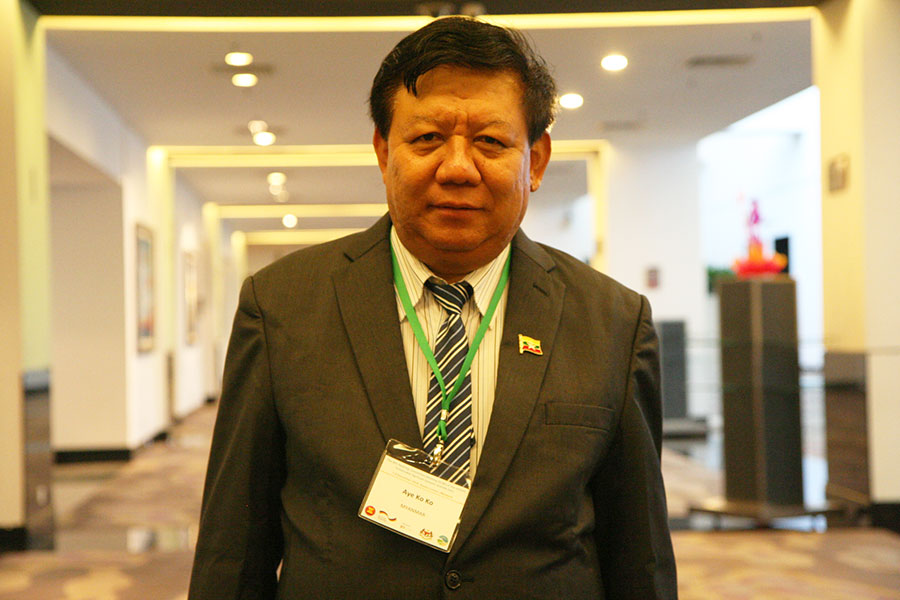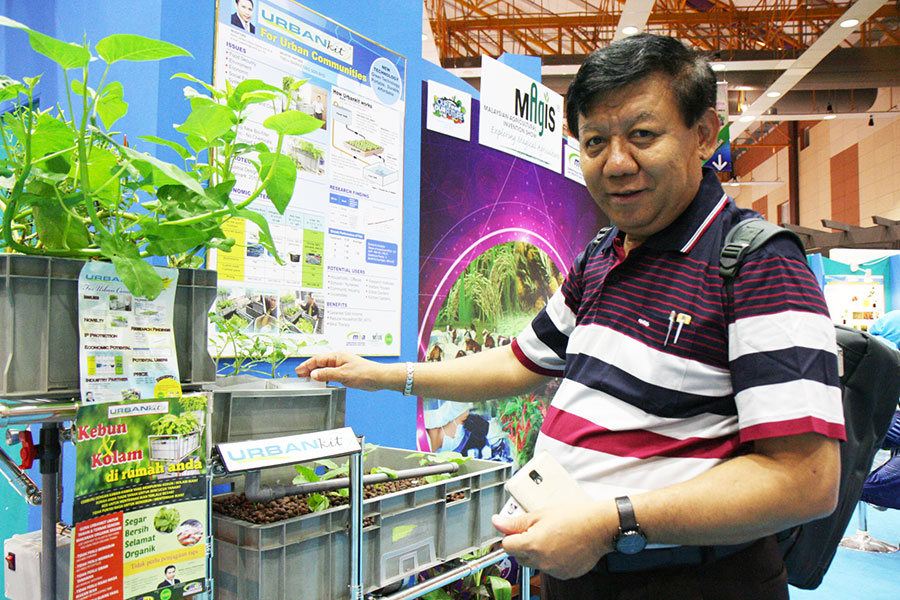
Writer: Rojana Manowalailao, ASEAN Sustainable Agrifood Systems
When asked Mr. Aye Ko Ko, a Deputy Director General of Department of Agriculture what he liked about ASEAN Sustainable Agrifood Systems project, he said the ASEAN Guidelines on Soil and Nutrition Management.
“No soil, no plant. No nutrient, no healthy plant,” said Mr. Aye Ko Ko.

Agriculture is very important to Myanmar, said the Deputy Director General (States and Regions). About 70 per cent of population in Myanmar is farmers and 30 per cent of the country’s GDP comes from the agriculture sector, he explained.
“Our government’s vision for our people is [to provide] food security and safety and we can produce quality agriculture products to compete in the international market…and enhance our farmers’ profit and livelihood.”
To do so, Mr. Aye Ko Ko said the country needed to upgrade its commodity, promoted its supply chain as a whole, and invested in food standard.
“We need supports in market linkages. We want to find markets in the US, Europe, and Africa. And, we need guidelines in improving our GAP [Good Agricultural Practice] and organic standards.”

In 2016, the country provided a GAP certification to its mangoes, and now is looking into developing the GAP certification to other crops such as rice, sesame, watermelon, and coffee.
“We are writing the protocols of the GAP guidelines based on the ASEAN Guidelines,” said Mr. Aye Ko Ko.
When asked what he wanted to see in the next 10 years, he said he wanted to see the agriculture sector in his country developed in a sustainable manner, farmers get knowledge in the GAP and organic agriculture and able to adapt and grow crops in higher yields and gets more income.
“I am happy with the progress [at the moment] even though we have so many challenges. We have problems of climate change, flooding and drought and lack of labor, and we need modernized technology and investment. Currently, our country countries have a lot of supports from the international organisations including ASEAN Sustainable Agrifood Systems project.
“I hope our country can develop,” he said.
The ASEAN Guidelines on Soil and Nutrition Management
The ASEAN Guidelines on Soil and Nutrition Management is a policy support document to national policy makers for guidance in developing national policies through the knowledge of ASEAN experiences and lesson learnt.
The Guidelines have been developed during various consultation meetings of expert groups on soil and nutrient management, at both, regional and national levels. ASEAN SAS’s Project Coordination Unit in Bangkok together with Thailand’s Department of Agriculture as host country facilitated the development process of the Guidelines.
Its scope includes a description of soil types in ASEAN, good soil management practices, good nutrient management, standard, regulations and market information of fertiliser and supplements, and recommendations targeted specifically at policy makers on how to set framework conditions for implementation of soil and nutrient management in their countries.